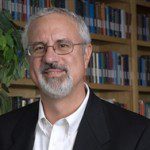I was recently invited by a friend at Sojourners to host some content from the Evangelical Immigration Table. This has been a contentious issue, and I’ve not taken a side personally. But I would like to have a better conversation amongst evangelicals concerning the reasons they do, or do not, wish to support the kinds of comprehensive immigration reform presently on the table (no pun intended). So in the days to come I’ll be hosting a set of essays on immigration reform, and I’d invite other submissions from anyone who would like to join the conversation.
*
Faith and Economics: Why Christians Should Support Immigration Reform
By Peter R. Crabb
In Luke Chapter 10 Jesus confirms the Law—we must love the Lord with all our heart, soul, and strength and love our neighbors as ourselves. He goes on to show that even strangers are our neighbors. We learn here and in other parts of the Bible that we must show love to immigrants whether or not they serve our economic interests. Fortunately, immigration reform is not a situation where our Christian faith must trump our economic incentives. Immigration, both authorized and unauthorized, has economic benefits for all. Economists often disagree, but on the subject of immigration reform there is a strong consensus over both the theory and evidence. Reform of the United States’ current immigration policy can be done in a way that respects the God-given dignity of every person, protects families, and ensures no loss to taxpayers.
In Deuteronomy chapter 10 God gives specific instructions for how we are to treat foreigners living among us. We are to not only love them, but provide food and clothing. Why did he make such a demand of the Israelites? Because they too were once strangers in a land. In Matthew chapter 25 Jesus commands us to invite strangers in, feeding them and ministering to their physical needs. Immigration is a policy debate where both our faith and economic knowledge line up. The U.S. has a strong heritage of welcoming immigrants, and much of our economic success can be attributed the skills, creative ideas, and work ethic immigrants brought with them.
There is a strong case that immigration helps the U.S. economy grow faster than it would otherwise. Even undocumented workers improve our economy. A 2006 survey of economists by The Wall Street Journal found that 59 percent of economists believe undocumented workers have only a slight impact on wages in low-skill jobs, but 96 percent said undocumented workers are beneficial to the economy because these workers fill jobs many American workers won’t accept and hold down the rate of inflation.[i] Writing earlier this year in The New York Times, Harvard economist N. Gregory Mankiw said “… economists are receptive to the concept of immigration, partly because they tend to have a libertarian streak.”[ii] Economic analysis shows that free markets lead to the best outcomes for society, and the question of immigration’s impact on labor market is no different. When markets are open to trade prices are lower and the quantity produced rises. This increases the rate at which an economy can grow and provides more choices for consumers.
Economy theory also supports greater immigration because of its association with entrepreneurism. New business formation is a key to economic growth and immigrants start small businesses at higher rates than native-born US citizens. Economist Robert Fairlie from UC-Santa Cruz showed that immigrants play an important role in economy by starting new businesses, creating jobs, and increasing exports.[iii] In 2011 immigrant owned businesses added more than $775 billion dollars of revenue to the U.S. gross domestic product. Further, Professor Fairlie showed that this was true even when the overall economy was weak.
Other economic research shows that immigration is good for U.S. worker productivity. Anyone willing to move to a new country is generally ambitious, that is, a good worker. Whenever output per worker rises the economy grows at a faster rate. In a 2010 study, Professor Giovanni Peri of the UC- Davis and researchers at the Federal Reserve Bank of San Francisco found evidence that immigrants expand the economy’s productive capacity, stimulate new investment, and boost productivity.[iv] Their local-level data shows that states with higher immigrant worker populations have higher rates of output per worker. Immigrants raise the overall output. Higher economic output brings in more tax revenue, helping reduce the federal budget deficit and stretched state budgets.
By increasing the avenues for legal immigration and reducing the number of undocumented workers in the U.S. we can also address one of the key factors of poverty – the breakdown of the family unit. Census data shows that poverty in the U.S. is strongly correlated with family composition. Families headed by a female adult without a spouse present are more likely to live in poverty than a family headed by a married couple.[v] This can be thought of as another productivity issue. A tight family unit is more likely to be productive and have a higher standard of living. With immigration reform fewer workers will leave behind their spouses and children, the entire family will have more support, and poverty around the world is likely to be lower.
Some analysts have argued that undocumented workers place a strain on the many government-provided benefits in the United States. These researchers have tried to show that US taxpayer is providing unwarranted income and services to millions of workers. But assumptions in this body of research give rise to inflated costs and ignore benefits. The Heritage Foundation has produced many reports suggesting that any revisions to current law providing undocumented workers some permanent status are bad for this country.[vi] However, the Heritage studies falsely assume immigrants use many services they don’t pay for and fail to make any assumption about the potential economic gains that arise when undocumented workers gain legal status.
The most recent Heritage report uses what economists call static analysis. The reports states that undocumented immigrants increase GDP by approximately 2 percent, but goes on to say that these same workers will capture most of the gain from expanded production in their own wages. The authors write, “…while unlawful immigrants make the American economic pie larger, they themselves consume most of the slice that their labor adds.” This statement contradicts the economic theory outlined above and the findings of other studies. For example, Professor Leighton Ku and lecturer Brian Bruen of George Washington University studied data from welfare programs like Medicaid, food stamps and the Children’s Health Insurance Program. [vii] They found that the families of low wage immigrant workers consistently use such programs less than their native-born counterparts. They also showed that when these poor immigrants did accept assistance it was at a lower cost than that of native families. Immigrants come here to work; the US taxpayer is not at risk. In the unlikely event an immigrant family does seek government benefits the cost is low and the long-term benefits outweigh them.
Our faith and our economics are aligned. Immigration reform is not just the right thing for Christians to do, it is good economic policy. There is widespread consensus among economists that all forms of immigration improve the country’s standard of living. Immigrant workers keep prices lower by accepting many unwanted jobs, starting new businesses, and increasing overall worker productivity. With reduced barriers to legal immigration families are more likely to remain together and poverty rates will decline. Finally, the data don’t support any suggestion immigrants are a burden to U.S. taxpayers. The United States’ immigration policies should be reformed so that we better respect the God-given dignity of every person, reduce the risk of poverty by keeping families together, and grow the economy faster for the benefit of all.
*
 Peter R. Crabb is Professor of Finance and Economics at Northwest Nazarene University in Nampa, Idaho. He holds a Ph.D. in Economics from the University of Oregon and an MBA in Finance from the University of Colorado. His research in economics and finance is published in the Journal of Business, the Journal of Microfinance, and the International Review of Economics and Finance, among others.
Peter R. Crabb is Professor of Finance and Economics at Northwest Nazarene University in Nampa, Idaho. He holds a Ph.D. in Economics from the University of Oregon and an MBA in Finance from the University of Colorado. His research in economics and finance is published in the Journal of Business, the Journal of Microfinance, and the International Review of Economics and Finance, among others.
*
[i] http://online.wsj.com/article/SB114477669441223067.html
[ii] http://www.nytimes.com/2013/02/10/business/how-economics-has-benefited-from-immigration.html
[iii] http://www.renewoureconomy.org/sites/all/themes/pnae/openforbusiness.pdf
[iv] http://www.frbsf.org/publications/economics/letter/2010/el2010-26.html
[v] See chapter 20 in Principles of Economics, N. Gregory Mankiw, South-Western Cengage Learning 2012.












